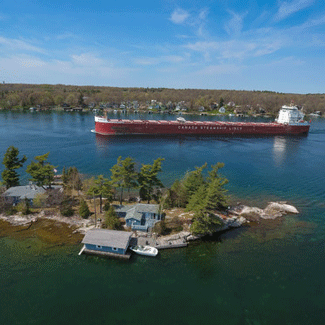
CSL successfully completes world’s largest biofuel tests
In late November, the CSL Group concluded the world’s longest trials of B100 biodiesel’s use in marine engines, accumulating nearly 30,000 running hours. The tests carried out on half of CSL’s Canadian fleet resulted in a 23% total C02 fleet lifecycle reduction when compared to marine gas oil (MGO) use.
Testing involved using 100% bio-content as a second-generation biofuel to existing ship equipment, replacing 14,000 tonnes of MGO. The results confirm biodiesel’s potential as a realistic, immediate alternative to fossil fuel use as a major step in maritime transportation’s shift towards decarbonization, according to CSL.
“Reducing our fleet’s carbon footprint is a strategic imperative at CSL and these trials clearly demonstrate the viability of biodiesel as a practical and effective option to drastically reduce our GHG emissions,” said Louis Martel, CSL’s president and CEO.
The biofuel trials were completed in partnership with Canada Clean Fuels and the collaboration of Sterling Fuels. They were conducted on eight ships over a period of six months under a Transport Canada testing protocol. The B100 biodiesel was tested on main and auxiliary engines and required no modification to any existing equipment.
Sourced in North America, the biofuel was produced entirely from waste plant material. Emission reductions were calculated through the Canadian government’s GHGenius lifecycle emission tool.
Photo: Jason Desjardins (CNW/The CSL Group Inc.)